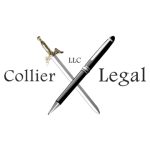How To File A Provisional Patent Application That Actually Helps

Navigation
- What is a provisional patent?
- Can I file a provisional patent myself?
- How much does it cost to file a provisional patent?
- What is the point of a provisional patent?
- What documents are needed for a provisional patent?
- Are provisional patents worth it?
- Do provisional patents get rejected?
- Do I need an attorney to file a provisional patent?
- How much does a lawyer charge for a provisional patent?
- Do you need an assignment for a provisional patent application?
- What is the cheapest way to get a provisional patent?
- What is the main disadvantage of a provisional patent application?
- Can I sell my provisional patent?
- How to write a provisional patent application?
- What is the difference between a provisional patent and a patent?
- What happens to a provisional patent after 1 year?
What is a provisional patent?
A provisional patent is a patent application that is filed but is not examined and does not issue into a granted patent. It provides a filing date that can be utilized by a subsequent nonprovisional patent application claiming priority to the provisional.
Can I file a provisional patent myself?
Yes, an individual may file their own provisional patent application. However, most provisional applications are drafted incorrectly, resulting in a useless application and potentially loss of patent rights. Therefore, individuals that are new to the patent system should never file their own provisionals.
How much does it cost to file a provisional patent?
The filing fee for a provisional patent application is $60 for micro entities, $120 for small entities, and $300 for all other entities. Additional fees will apply for legal counsel or professional drawings, if applicable.
What is the point of a provisional patent?
Provisional applications serve 3 main purposes:
- Establishing a filing date before going public with an invention;
- Extending the deadline to file a nonprovisional if an invention has already been publicly disclosed;
- Permitting the use of the phrase “patent pending”.
What documents are needed for a provisional patent?
Provisional patent applications require the following items to be properly filed:
- Specification
- Drawings
- Application Disclosure Statement
- Cover Sheet
- Filing Fee
Are provisional patents worth it?
Most provisional patents do not sufficiently describe and define the invention, so they are not worth it. When a nonprovisional application corrects any deficiencies in a provisional, the correction is considered “new matter”. The USPTO does permit new matter to obtain an earlier filing date by priority reference. Thus, most provisional patents do not establish a filing date because they fail to sufficiently describe the invention.
Do provisional patents get rejected?
No, a provisional patent does not get rejected. A patent office rejection is an office action following substantive examination of an application. Provisional applications are not examined.
Do I need an attorney to file a provisional patent?
An attorney is not required for filing, unless the application is filed on behalf of a business or legal entity. However, almost all pro se applications are invalid because they are insufficiently described.
How much does a lawyer charge for a provisional patent?
Many lawyers offer cheap provisional drafting fees. These fees may be less than $1,000 and even as low as $500. However, these lawyers also file insufficient provisional applications.
A properly drafted provisional defines and supports the invention in multiple areas of the specification. Proper applications also include a sufficient number of drawings and views of the invention. Furthermore, it will provide a foundation that supports a full set of claims.
Therefore, a sufficiently drafted provisional that adequately supports a subsequent nonprovisional will include at least half of the work required for a nonprovisional. It logically follows that an adequate provisional would cost approximately 50% of the fee charged for a nonprovisional. Be wary of any service provider offering provisional drafting services for substantially less than half of their utility application costs.
Do you need an assignment for a provisional patent application?
If you sell your ownership rights to an invention disclosed in a provisional application, an assignment is not technically required. However, if no assignment is executed, then the inventor/seller’s participation will be required in a subsequent nonprovisional claiming priority to the provisional being sold.
What is the cheapest way to get a provisional patent?
The cheapest way is for an inventor to file the application pro se. This will limit the cost of the application to just the filing fee. However, the vast majority of pro se applications are deficient and end up being useless.
What is the main disadvantage of a provisional patent application?
The main disadvantage of a provisional patent is that it does not get examined, and thus does not issue. To sue for patent infringement, an issued patent is required. Therefore, a provisional will not give you the right to sue for patent infringement.
Can I sell my provisional patent?
You can sell your idea whether or not it is the subject matter of a patent application. Non-issued applications, including provisional applications, provide a small increase in value to an invention when looking to sell. An issued patent provides significantly more value because the claims are protected on issuance and provide support for a patent infringement lawsuit.
How to write a provisional patent application?
The best way to write a provisional application is to research issued patents and to include as much information as is provided in the issued patents. This method is especially effective when using issued patents in the same industry or involving similar subject matter.
It is best practice to follow up with an experienced patent attorney and have them review your draft. This will allow you to file an application approved by a professional while reducing the professional’s time and fees for their assistance.
What is the difference between a provisional patent and a patent?
A patent issues from a nonprovisional application and grants the recipient the right to sue for patent infringement. A provisional patent does not issue and does not grant any right to sue for patent infringement.
What happens to a provisional patent after 1 year?
A provisional patent expires after 1 year. If the applicant does not file a nonprovisional and claim priority to the provisional within that year, the filing date of the provisional is lost. If the provisional was never published, the inventor may still file another application and obtain a new filing date.

About
Attorney Collier started his own law firm straight out of law school and has been practicing law in Ohio for 5+ years. During that time, Joe focused on business law and litigation, gaining some exposure to intellectual property law. While running his firm in 2021, Joe decided to go back to school and get his patent license. Since then, Attorney Collier has been focusing on protecting innovators and entrepreneurs through his expertise in intellectual property and business law.
